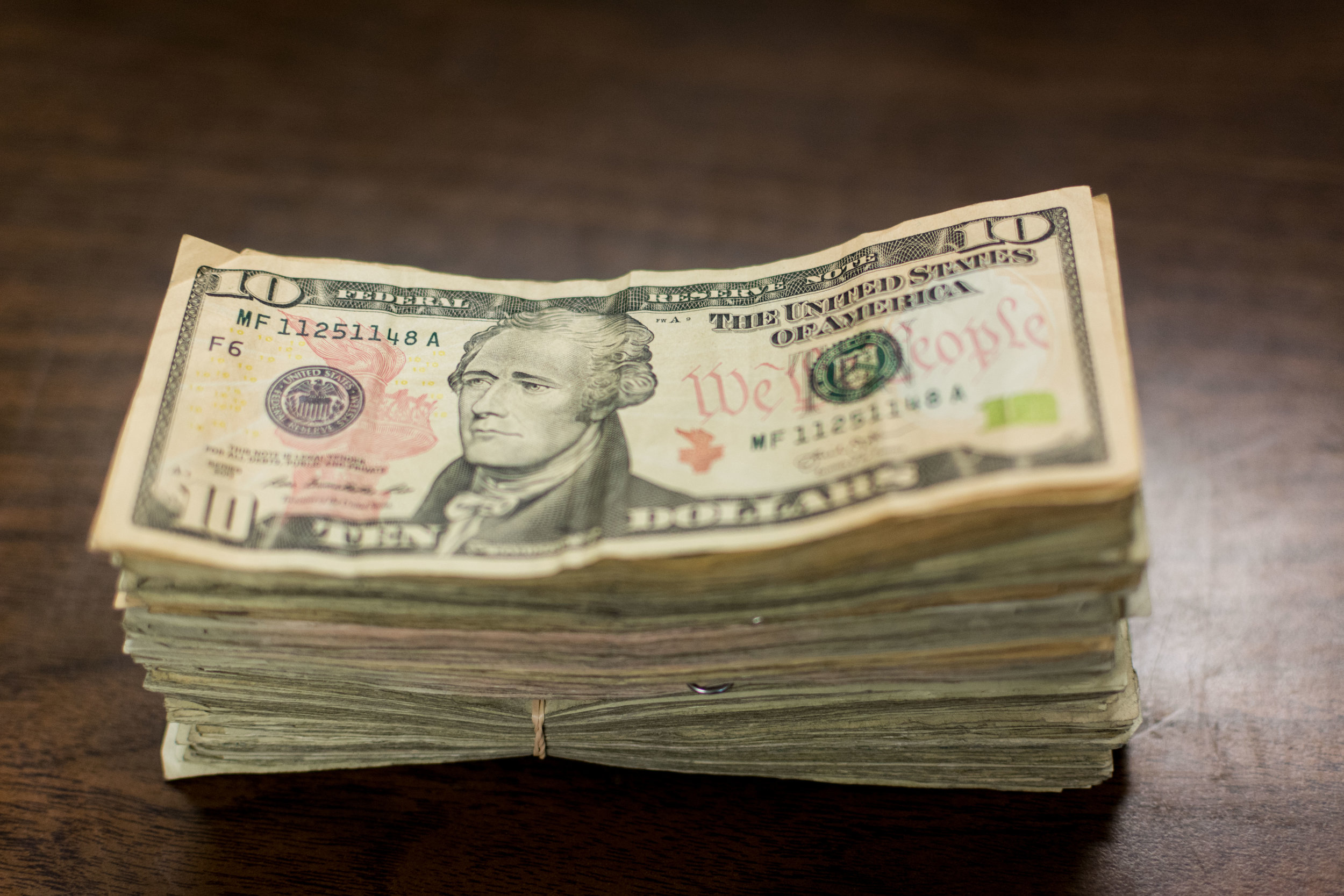The one percent
For some, a stack of cash can become their identity. | PC: Zach Morrison
Emotion is the death of reason
The one percent.
Most of the time this demographic is mentioned, it’s done so with a negative connotation.
I watched an interview on Fox Business with Neil Cavuto and a leader of the Million Student March, an organization advocating for free public college, named Keely Mullen.
In the interview, Mullen lays out her plan for free college in the U.S., and when Cavuto asks her who will pick up the tab for the program, she tells Cavuto, without missing a beat, “the one percent.”
She justifies this by leveling that the one percent are hoarding the wealth and are the responsible parties for the economic state the U.S. is in.
While watching the video, a question came to my mind. Why do these people, the one percent, not get the benefit of the doubt?
Aside from the subjective morality of wealth redistribution, why is it assumed these people came into their economic station in a distasteful manner?
Suppose I worked at a restaurant and decided to pick up an extra shift or two over a given weekend. After the weekend was over, my manager comes to me and says “Hey, we had more customers than expected these past few days and you didn’t get behind once, so we’re going to give you a small bonus this month.”
If, after I got paid, one of my coworkers saw my check and said, “Hey, how come you got paid more than me?”, the answer would be simple. I put more into my job and I did a good job, so I was rewarded. Not to mention I might be a bit offended.
After all, I earned that money.
No one would question the validity or fairness of such reasoning. But expand this metaphor to include CEOs, and suddenly people have a problem with it.
Certainly, there have been many proven cases of corporate giants cheating on their taxes or unfairly making obscene amounts of profit off consumers with that have no other option. Take, for example, Mylan, the pharmaceutical company currently making headlines for its meteoric rise in the price of its life-saving drug, EpiPen.
My brother, who has a life-threatening allergy to peanuts, has every right to be outraged at Mylan for such a tactic.
But in the same way that it’s wrong to look at every homeless person and think, I bet they’re just lazy and are living off government handouts, it’s also wrong to think about all rich people as selfish, undeserving con-artists.
To do anything else promotes a gross double standard.
I believe that, instead of pushing the idea that the one percent are suppressing the rest of our opportunities, we should use them as our role models.
Who doesn’t want to be so successful that they can be considered part of the top one percent in their field, let alone so broad a measurement as wealth? And who better to seek counsel from than someone who’s already where you want to be?
People of low character come in all economic classes. Money is amoral. Its only ability is to give the individual who possesses it an enhanced opportunity to act on the kind or evil desires of his heart.
To avoid ignorance is to avoid painting with a broad brush, and in such a situation, this can be accomplished by rejecting the greedy, conniving stereotypical “one-percenter” and replacing it with successful role models of high character and unrelenting drive.
Jonathan Deemer is a sophomore studying biomedical science


